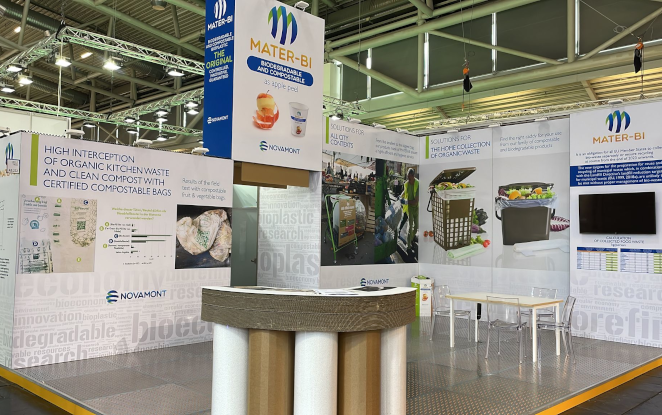Italian organic waste collection model at IFAT 2022
IFAT, the world's leading trade fair for water, waste and raw materials management, was held in Munich from May 30 to June 3.
The event offered an important opportunity to discover challenges, trends and innovative solutions for the sector and to bring together industry players from around the world.
Novamont participated with its own booth, where visitors had the chance to learn more about the Italian model of organic waste collection, a successful case study in Europe. In particular, the Group promoted, alongside municipalities and administrations, a model, pioneered since the 1990s, which involves the distribution of compostable bags for the separate collection of organic waste in municipalities and a door-to-door collection system. The organic waste is then treated in composting plants to produce compost, a valuable soil improver.
Over the years this model has been extended to the whole country, and thanks to Italy's 2012 law to reduce disposable bags and the use by citizens of compostable bags for organic waste collection, Italy is now first in Europe for food waste recycling (47 percent against the European average of 16 percent)1.
This is an important recognition, confirmed also thanks to the recent introduction in all Italian municipalities of the mandatory separate collection of the wet fraction through Legislative Decree 116/2020, which implements in our country the European Directive 2018/851 on waste, anticipating by two years the obligation at European level.
At Novamont booth, visitors could also discover the project "Praxistest Biobeutel", a successful case study in the German context, which saw the introduction of compostable fruit and vegetable bags in some stores of the German supermarket chains EDEKA and REWE in the Bavarian city of Straubing, which were appreciated by consumers for the collection of wet waste as well.
1 Zero Waste Europe and BioBased Industries Consortium, Bio-waste generation in the EU: Current capture levels and future potential, 2020.

